Updated 2025.
Makeup Artists Questions: Key Points
- Ask about skin allergies or sensitivities to ensure safety.
- Clarify logistics like location, timing, and number of clients.
- Discuss desired makeup style and manage expectations.
- Match makeup to outfits and overall event theme.
- Adjust makeup based on client’s usual routine and event conditions.
Introduction
Pro makeup artists are used to fielding a million questions from their clients during an appointment: “What’s your favorite makeup brand?”, “Are Kylie Jenner’s liquid lipsticks a staple in your kit?”, and “I have sensitive skin, will that foundation make me break out?” The works!
But your interactions with your clients shouldn’t only feature one-way questioning! They are called interactions, after all. Meaning, you’re expected to also ask your clients a number of questions to best cater your services to their needs.
Not sure what to ask? Here’s our list of the 6 questions professional makeup artists should always ask their clients!
”After I ask what they want (and REALLY listen to the answer), I always make my clients my makeup assistant. Not only do I tell them what I’m doing and what it achieves; I consistently ask if they like where it’s going, or if they want to try/add something different. I've never had an unhappy client when they are part of the creation process!
Nathan JohnsonCelebrity Makeup Artist & QC Makeup Academy Executive Instructor
1. Do you have any skin allergies or sensitivities?
First of all, let’s start with the most obvious question.
When it comes to doing makeup, your number one concern is your client’s safety! Obviously, you don’t want to open yourself up for a lawsuit. But even more importantly, you don’t want to leave your clients traumatized after your session. Thus, you need to address their allergies before any product EVER touches their skin. This way, you can stock your kit with the appropriate items.
Also, make sure that after you do a test run on your client, you don’t choose to switch out the products on the actual application day without first letting them know. They might have no reaction to the product you used on them initially, but if you change the product without their knowledge, it could only take a moment for hives to suddenly pop up!
”Always ask, "Do you have any allergies or sensitivities?" Always!
Nathan JohnsonCelebrity Makeup Artist & QC Makeup Academy Executive Instructor
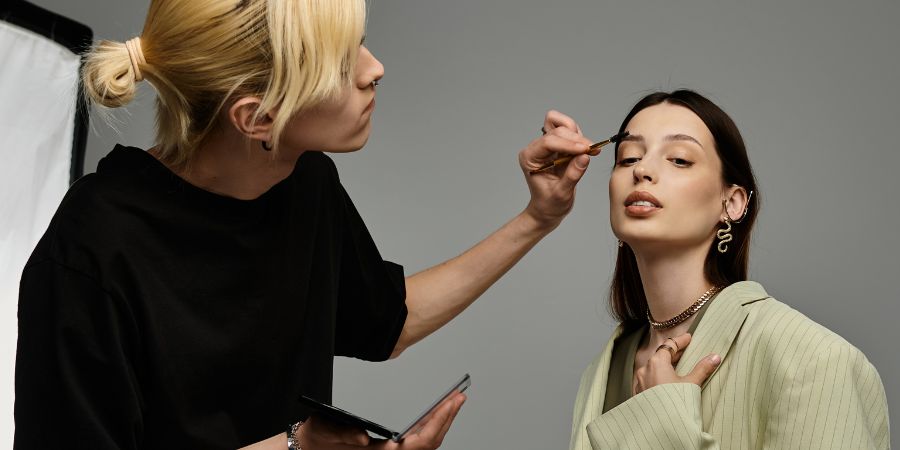
2. What are the logistics for the job?
Secondly, are they coming to you for the appointment, or are you going to them? Who and how many people’s makeup are you going to be doing? When will this take place? For how long are you expected to be on location for touch ups?
You need to break down the logistics of the big day before accepting the job. This will help you determine any/all travel expenses and miscellaneous details. Furthermore, it’ll also give you a clearer picture regarding any other appointments you may be booking for that day.
3. What style of makeup are you looking for?
Next, you want to know what their expectations are before you can attempt to meet them. After all, you’re good at what you do—but you’re not psychic! The client can show you photos of celebrities donning a relatively simplistic makeup look that they swear they want…
But that doesn’t mean it’s realistically possible to meet their expectations.
Sometimes, what they think they want may not necessarily be what they actually need. It’s up to YOU as the makeup professional to provide expert advice (based on your training and past experiences) alongside the best possible customer service!
That being said, make sure that you’re constantly communicating with them about any changes that you’re suggesting. The last thing you want to do is just slather on the makeup and find her horrified when she finally gets a peek in the mirror.
”Really listening to the client is the difference between ‘Wow!’ and ‘Oh, God!”
Nathan JohnsonCelebrity Makeup Artist & QC Makeup Academy Executive Instructor
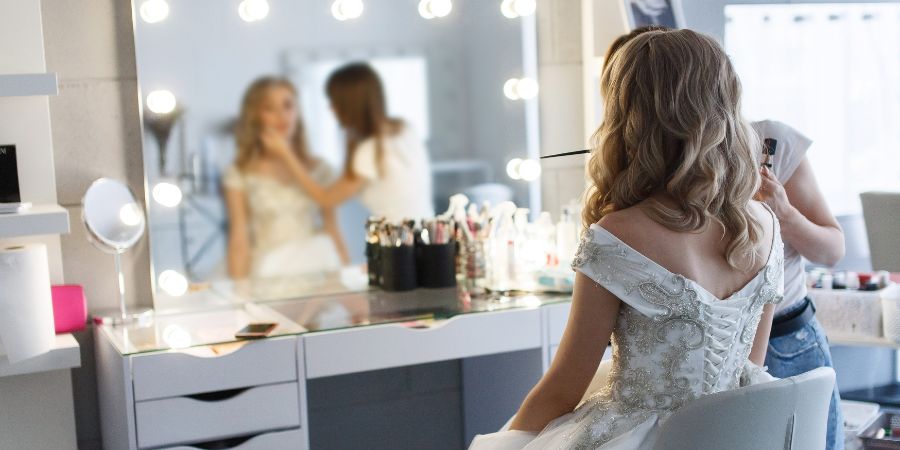
4. What will you be wearing for the occasion?
It’s important to ask your clients what they’ll be wearing. If they’re brides, this is especially crucial. After all, you don’t want to do a fierce, edgy look for them, only to find that they had picked out a vintage dress for the big day. Making sure your work is cohesive and complimentary to the other aspects of their look and the bigger context is key!
So, tap into your knowledge of color theory. Examine their complexion and skin needs. From there, compliment it with the style of their outfit.
On the surface, this may sound like a lot of work. However, once you get the hang of it, you’ll be able to do quick assessments and make snap decisions without skipping a beat!
5. How much makeup do you usually wear?
You may be thinking that they hired you to do their makeup for a special occasion or photoshoot, so why does it matter what their usual makeup routine is? Well, it does matter! Let’s say that your client isn’t used to wearing a full-face of makeup on the daily. Well, suddenly having a thick layer of foundation can freak them out. And trust us, that the absolute WORST thing that can happen!
Again, this is why communication is key. For instance, if you’re switching up the foundation consistency, make sure they’re aware of the benefits of one type of foundation over the other. If you’re applying three different color-correcting concealers to their face instead of just one (like perhaps they’re used to), explain why!
You want to make sure that their needs are met without making them feel like a stranger in their own skin.
”With a client who’s nervous, ask, "What’s your usual makeup routine?" Then do that, but bump it up. Nine times out of ten, it'll make them feel like the most perfect version of themselves.
Nathan JohnsonCelebrity Makeup Artist & QC Makeup Academy Executive Instructor
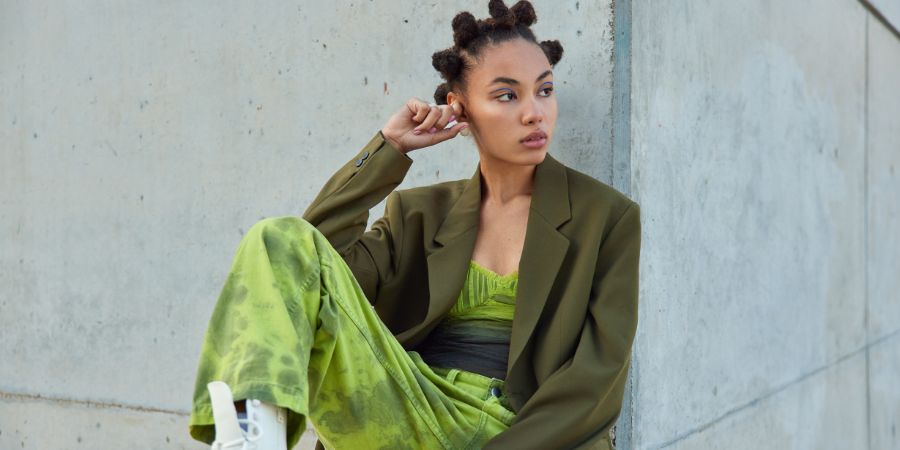
6. What’s the nature of the event? What are the weather conditions?
Only an amateur makeup artist will apply the same type of makeup for every situation. Thank goodness they hired you, though!
Is your client doing a dramatic photoshoot in the pouring rain? Maybe they’re going into the Nevada desert for a wedding? For both these contexts, you’ll have to consider makeup products with different properties to give them what they need, both visually and functionally!
For instance, in both of these examples, you’ll want to use waterproof/resistant makeup for the rainy weather. Additionally, you may also want to use extra primer and/or setting powder to keep their face makeup from melting off in the heat.
(And we definitely don’t have to tell you that if they’re going to be photographed, you’ll want to tread carefully if using foundations with SPF in it!)
Questions Makeup Artists Should Ask: Final Thoughts
As a professional makeup artist, asking the right questions is just as important as having the technical skills to create flawless looks. When you learn more about your client’s needs, style, and comfort level, you not only deliver a beautiful result but also build trust and lasting relationships. These conversations turn a simple appointment into a personalized experience. This sets you apart and keeps clients coming back!
Take Your Skills to the Next Level with QC’s Master Makeup Artistry Course
If you’re ready to elevate your artistry and career, QC Makeup Academy’s online Master Makeup Artistry Course is the perfect next step.
You’ll gain expert training in advanced makeup techniques, business skills, and client care—all from the comfort of home, at your own pace. With guidance from industry professionals and a globally recognized certification, you’ll be fully prepared to launch or grow a successful makeup career!
”I loved my experience with QC Makeup Academy! All my feedback for the Master Makeup Artistry Course is positive. It was hard at first, but once I received my tutor’s feedback, I was more confident than ever in my ability to grow as an MUA. After completing my training, I’ve come to understand that my much-loved hobby is something I can (and will) definitely turn into a full-time profession!
Gabbie-Anne WorthingtonMaster International Makeup Professional (MIMP)™ • QC Makeup Academy Student
Did we miss important questions that absolutely need to be mentioned? Sound them off in the comments below!
”The consultation is the most important part of the job. Ask the right questions. Listen. Then, have the skills to deliver the result!
Nathan JohnsonCelebrity Makeup Artist & QC Makeup Academy Executive Instructor
Helpful Resources for Makeup Artists
- 3 Ways To Retain Long-Term Clients For Your Makeup Business
- Running a Makeup Business: Expectation vs. Reality
- 15 Best Tips To Market Your Makeup Business
- How To Boost Revenue For Your Makeup Artist Business
- Finding a Niche As a Makeup Artist
- Branding Your Makeup Business
- 4 Business Choices That’ll Hurt Your Makeup Artist Salary
Frequently Asked Questions for Makeup Artists
How far in advance should I book a makeup artist?
It’s best to reserve your artist 6 to 12 months ahead for weddings or major events. For smaller shoots or less busy dates, booking 2–3 months in advance is often sufficient.
What information should I provide before the trial?
Share your outfit, inspiration photos, event details (venue, lighting, time), and any skin allergies or sensitivities. These help the artist plan a look that suits your vision and skin.
Can you recreate a specific look from a photo I bring?
Yes, most professional makeup artists welcome reference images. But keep an open mind: shaping that look to your features, skin tone, and preferences may require slight adjustments.
What if I don’t like the makeup after the trial?
Communicate what you like and dislike. Good artists will happily tweak or redo areas during the trial. The trial is your chance to reach your ideal look together.
What hygiene & safety practices do makeup artists use?
They should sanitize brushes/tools between clients, use disposable applicators when needed, patch-test for allergies, and avoid expired or contaminated products to protect your skin.
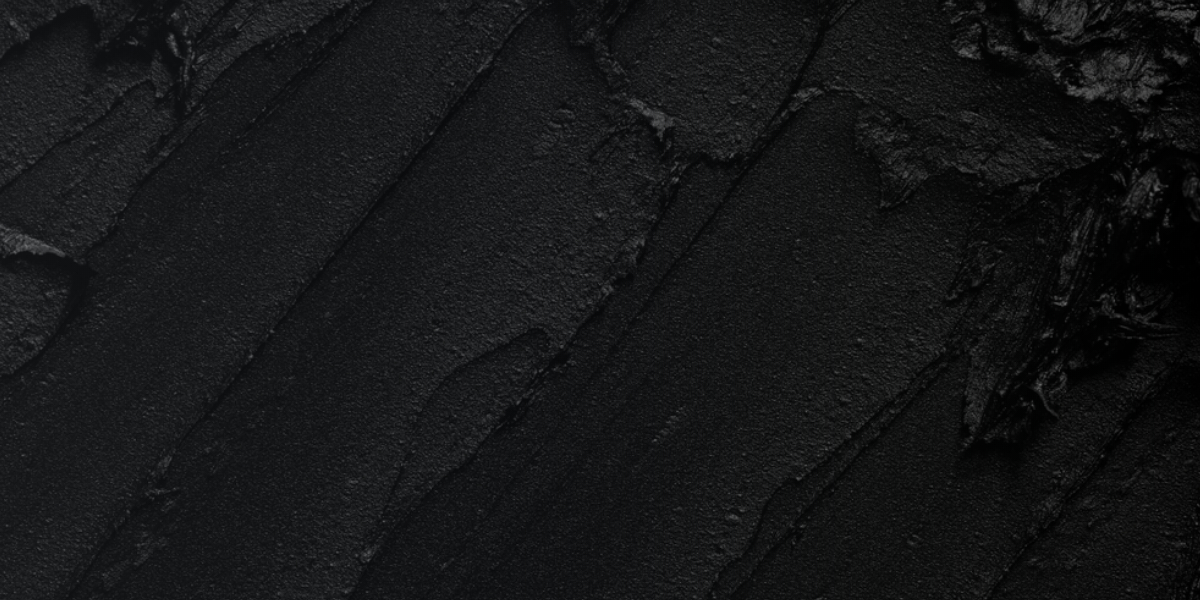
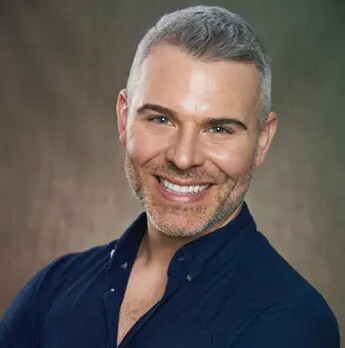
I have a question about the last point, why would you stay away from SPF when doing makeup for a photoshoot?
Hi Therena,
Thanks for your comment! The reason why you should stay away from SPF during a photoshoot is because sunscreen is designed to reflect light. Especially if flash is being used, you’ll find that the model will have an ethereal glow that seems a bit off in the scheme of the shoot!
Should I ask my client to do a little peeling a day before the appointment?
If you feel that that would improve the job you’re going to do for them (or might otherwise hinder your work), then you can by all means bring it up with them prior to the appointment. 🙂